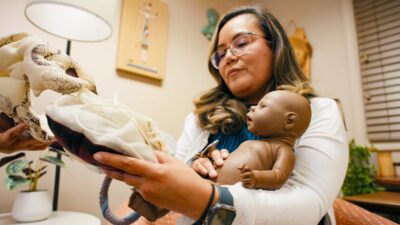If you ask Jacksonians about tap water, they’ll often raise concerns about water quality and lead exposure.
For many years, Jackson, Mississippi, has faced a water crisis – from unreliable access to water to unclear information about how it impacts them. Even when water runs from taps, residents have worried whether it was safe to drink, given frequent boil water notices and mass notices about Lead and Copper Rule violations.
The water crisis in August 2022 – which left residents without running water or low pressure for weeks – magnified those concerns and exposed the need to keep the community informed about water quality, including the responsibility of property owners to identify and mitigate lead in their water.
According to the EPA, residents must be notified if more than 10% of homes have lead levels above 15 ppb (parts per billion). While JXN Water, the city’s water utility company, monitors water quality to ensure it meets all federal safety standards, it is not JXN Water’s role to monitor safety where residents are most at risk – from the connection in the street to the faucets inside of their homes.
“Jacksonians needed to understand that pipes on their property are the responsibility of homeowners, landlords and business, not the water system’s,” said Jane Alexander, president and CEO of the Community Foundation for Mississippi (CFM), which highlighted this gap and partnered with the W.K. Kellogg Foundation to create a lead toolkit to help educate residents.
This comprehensive toolkit was created for homeowners, renters, landlords, childcare providers, and families with school-aged children. Its primary aim is to equip Jackson residents with the knowledge and tools they need to assess and mitigate lead exposure risks in their homes, empowering them to take control of their health and safety.
“We all have a role to play in the system’s health. Through conversations during the water crisis, we saw how much people didn’t understand their part to play in the water system from their curb into their homes,” said Alexander. “This is an important step to helping the community understand the issues and highlight what power our residents have in different capacities.”









Comments